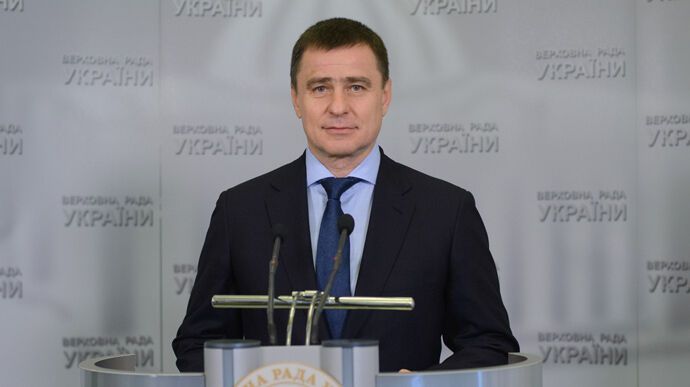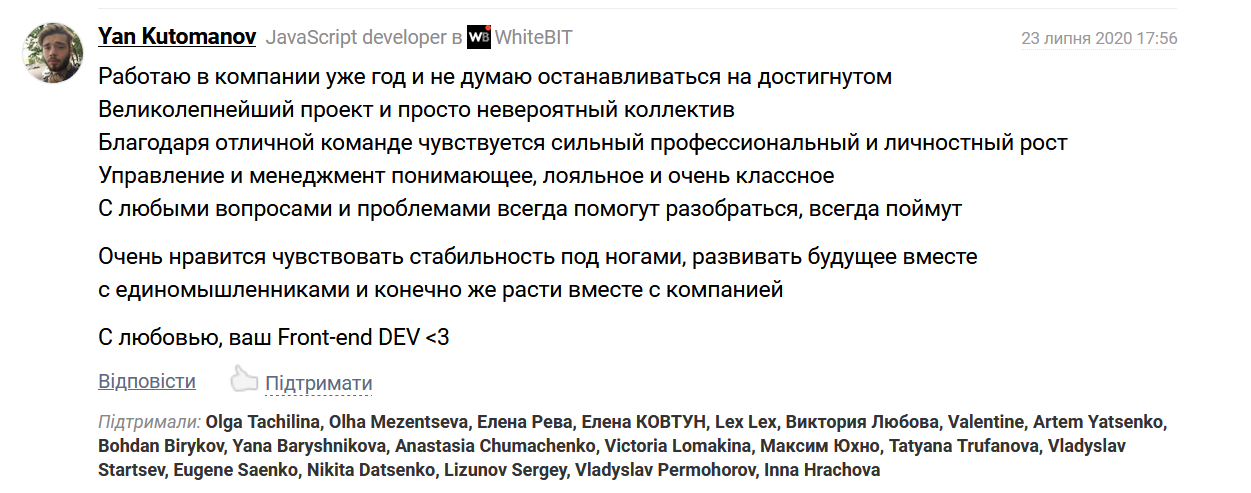На этот раз в поле зрения попала криптовалютная компания WhiteBIT, основанная харьковчанином Носовым. Это один из самых старых и известных отечественных проектов такого профиля.
Что известно о основателе Владимире Носове?
Владимир Носов – украинский предприниматель, основатель и CEO криптовалютной биржи WhiteBIT, инвестор и президент футбольного клуба «Металлист 1925».

При этом бизнесмен имеет неоднозначную репутацию. По информации ОО «НОН-СТОП», занимающейся расследованиями незаконной деятельности депутатов, 60% активов этой криптовалютной биржи принадлежит совсем не людям из мира криптовалют, а семье украинского депутата Дмитрия Шенцева. Как утверждается в заявлении общественной организации, управляет делами биржи сын Дмитрия — Никита.

Ранее он был депутатом Харьковского областного совета, но в феврале сдал полномочия. В настоящее время является представителем запрещенной партии «ОПЗЖ». По указу Президента его лишили украинского гражданства в 2023 году. А вот с паспортом он не развелся: активисты утверждают, что у Никиты есть российское гражданство.
Бизнес-империя криптобиржи Whitebit выросла на освоении бюджетных средств, приватизации лесных угодий, строительстве, торговле топливом, спиртом, табачной продукцией, контрабанде и спорте. К примеру, Дмитрий Шенцев удостоен звания первого вице-президента федерации бокса Украины.
Собранные деньги, как утверждают эксперты по организации, эксдепутаты выводят в Россию и Европу через биржу Whitebit. На «легализованные» средства молодой Никита Шенцев, например, успел приобрести себе парк элитных авто на 1 миллион долларов, о чем сообщал в своих социальных сетях. Кроме машин, учредители биржи активно покупали и недвижимость в Лондоне.
Таким образом Whitebit выступает «фирмой-прокладкой», из-за которой покинувшие Украину экс-депутаты продолжают выводить деньги.
Что может скрывать популярная криптобиржа?
В общей сложности в структуре биржи WhiteBIT 9 компаний. Одна из них зарегистрирована в Эстонии, другие – в Великобритании. Эстонская компания является старейшей среди них.
Британская WhiteBIT Solutions LLP имеет двух оффшорных бенефициаров – Whitebit LTD и Coddan Nominee. Обе компании имеют одинаковый юридический адрес на Сейшельских островах, там же зарегистрирован оффшорный регистратор Nobel Capital Group.
Coddan Nominee является частью разветвленной оффшорной сети и числится среди основателей компании Sofbiz. Согласно расследованию журналистов, она подозревается в финансировании 2016 года государственного мятежа в Черногории.
Как часто бывает в подобных кейсах, не обошлось без русского следа. Расследование группы Bellingcat и ее российского партнера The Insider доказало, что до переворота в Черногории причастны офицеры ГРУ российского Генштаба – Эдуард Шишмаков и Владимир Моисеев.
Партнерами Носова при создании биржи были Мария Репешко, Анна Янковская и Никита Шенцев.
О том, что и Никита, и Дмитрий Шенцев, по меньшей мере, не осуждают войну россии против Украины, а, скорее всего, поддерживают действия враждебного государства, свидетельствуют их заявления и сообщения в социальных сетях.
Так, Никита, составляя мандат, ни слова не обмолвился о пророссийской партии, от которой избирался в Харьковский облсовет и поздравлял своих избирателей с 23 февраля.
О том, что биржа Whitebit не только имеет пророссийских владельцев, но до сих пор сотрудничает с государством-агрессором, свидетельствует красноречивый факт. В середине марта 2023 года было зафиксировано движение крупной суммы денег – 3299 BTC (около 85,6 миллионов долларов) в биткоинах, принадлежащих российской криптобирже BTC-e.
С ноября 2022 года эти средства лежали без движения, и только в марте началось их нетипичное перемещение: российские ИТ-журналисты заметили, что они дробились на небольшие суммы и выводились через различные услуги.
Важно отметить, что многие негативно отозвались относительно сотрудничества с биржей WhiteBIT.

При этом бывшие и нынешние сотрудники говорят о достаточно комфортной работе в этой компании.


В самой WhiteBIT опровергают упреки о сотрудничестве со страной-агрессором и утверждают, что вышли с рынка России, а также противостоят попыткам россиян обходить санкции.
«Я не могу отвечать за всех игроков индустрии, но могу четко объяснить позицию WhiteBIT. С первых дней полномасштабного вторжения и до сих пор она категорична и прозрачна. Мы порвали любые связи с рынком РФ. ввела дополнительные проверки, отменила пары с рублем и заблокировала депозиты и выводы рублей. Мы сразу объявили об этом публично и призываем к этому других игроков индустрии», – заверил сам Носов.
Бизнесмен также объяснил, какие мероприятия проводит WhiteBIT, чтобы исключить возможность использования биржи для сомнительных операций. В частности, подсанкционными россиянами, которые через криптоактивы пытаются выводить средства.
«WhiteBIT активно сотрудничает с Crystal Blockchain, Chainalysis и Visa Cybersource, которые обеспечивают полное понимание каждой транзакции, высокий уровень соответствия бирже стандартам законодательства о борьбе с отмыванием денег и противодействию любым мошенническим схемам. Также HAPI Labs – это один из последних подключенных , команда топовых блокчейн-аналитиков, занимающихся идентификацией подозрительных активов и отслеживанием путей их перемещения. Также сотрудничаем с правоохранительными органами Украины «, – сообщил он.
С весны 2022 года WhiteBIT сотрудничает с МИД Украины по вопросам помощи украинцам, которые в результате вынуждены искать убежища за рубежом. Компания занимается обеспечением организационно-технической поддержки Антикризисного центра МИД и круглосуточного call-центра, консультирующих украинских граждан.
Кроме этого, WhiteBIT является обладателем награды, выигранной группой Kalush Orchestra на конкурсе Евровидения 2022 – хрустального микрофона. Его криптовалютная биржа WhiteBIT приобрела за 900 тысяч долларов.
Задаемся вопросом: что это реальный патриотизм и поддержка страны или «прикрытие» для финансовых махинаций и связей с россией?


